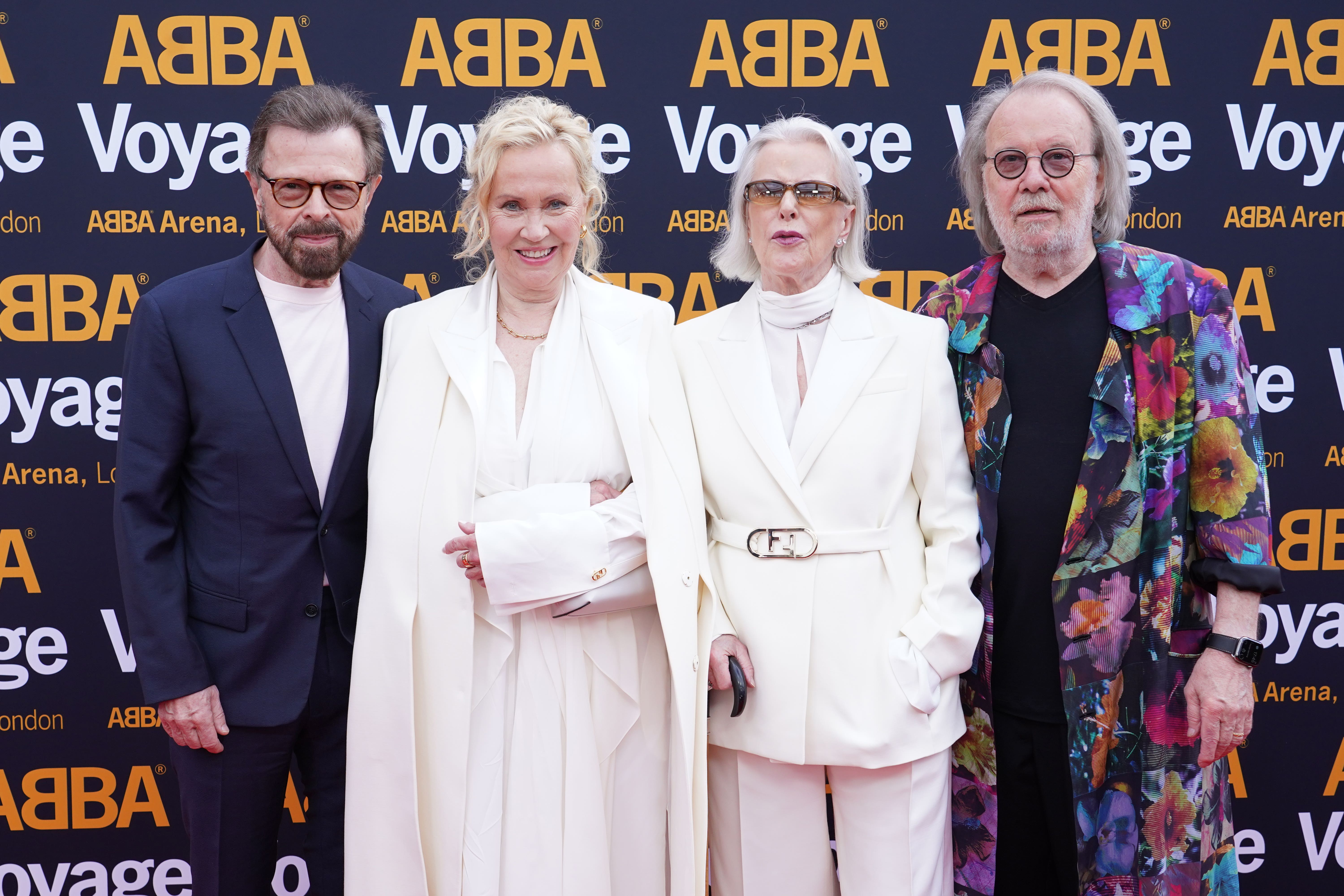Abba were ‘really moved’ by support during UK shows, says Agnetha Faltskog
A BBC documentary explores the impact the Swedish pop supergroup had on British music.

Abba star Agnetha Faltskog reflects on how the group were “really moved” by the support they received during their UK shows in a new BBC documentary marking the 50th anniversary of their Eurovision victory.
The programme, titled When Abba Came To Britain, charts their journey from being inspired by The Beatles to Abba Voyage being launched in London, through archive and previously untransmitted interview clips from the group and people close to them.
Primal Scream’s Bobby Gillespie, indie rock band Blossoms, Abba superfans and their tour manager Thomas Johansson are among those who delve into the impact the Swedish pop supergroup had on British music in the documentary.
The group – Faltskog, Bjorn Ulvaeus, Benny Andersson and Anni-Frid Lyngstad – formed in Stockholm in 1972.
The programme looks back at how their passion for music began in their childhoods and Ulvaeus and Andersson later bonded over playing Beatles songs together.
Their Eurovision success with Waterloo at Brighton Dome’s Concert Hall features commentary by Swedish author Carl Magnus Palm and a UK judge from the 1974 contest, Basil Herwald.
Herwald, who gave the group “nul points” on the night, recalls how the impression they made on the night “wasn’t a deep one”.
Despite this, one member of the band says: “It was one of those moments when life changes from one day to another.
“Suddenly the whole world is open to us, the whole world is open, and that was a tremendous feeling.”
The programme shows how the group experienced a popularity dip after Eurovision but they knew they had to focus on cracking the British market.
After their fame began to rise in the mid 1970s, they played their first public concert in the UK in February 1977 at the Birmingham Odeon to a crowd of more than 2,000.
In an interview from after the show, Ulvaeus says: “We were way more nervous tonight, maybe since the first night in Oslo, because England is the homeland of this type of music.”
Another key moment in the programme is their Wembley Arena performance in 1979, when they brought out the Wembley Manor Junior School Choir to perform I Have A Dream, and Sky News host Gillian Joseph recalls the experience as a child in the choir.
In a voiceover, Faltskog says: “Those times we had here in London at Wembley Arena, we never forget this, we were really moved, we could really feel the love.
“And we are very very proud of this. It makes me very happy.”
Gillespie reflects on the power of the group, saying: “Whether you bought Abba records or not – and I only ever bought one album, which was Dancing Queen – their music seeped into your consciousness.”
He admits he does not think he would have revealed he was an Abba fan in the 1970s but recognised the influence the group had.
“The sheer joy of pop music, its gives people that release where they just forget who they are, they’re just lost in the moment,” he adds.
The programme reflects on their separation, first as two couples – with Faltskog and Ulvaeus divorcing in 1980 and Andersson and Lyngstad separating in 1981 – and then as a band in 1982.
Ulvaeus says: “It was the failure and the sadness we felt, the two of us, that was the important thing, not how the public received it.
“Divorce is always a very, very sad affair even though we both decided, I think at the same time, it’s time to part.”
On the group’s gradual split, he adds: “There was a different atmosphere. We had been together since ’71 so that was really the creative lifespan of any group you can think of.
“In our minds, we were already on our way to various different things.”
The documentary also shows clips from the last time the band were in the UK together, on The Late Late Breakfast Show hosted by Noel Edmonds.
Faltskog says in a voiceover: “It suddenly had got a bit heavy. It was not so fun any more to record, there was something in the atmosphere that didn’t feel good.”
The hour-long documentary examines how the group’s popularity was revived in the UK in the 1990s through the club culture in London’s West End, fuelled by the release of their greatest hits album, Abba Gold, in 1992.
It concludes by exploring how the band launched Abba Voyage, a virtual concert in which life-size avatars of the members as they looked in 1979 performed in 2022 in a purpose-built arena in east London.
Andersson’s son Ludvig Andersson, the producer of Abba Voyage, says: “The place that kept it alive and the place that always seemed to like what Abba was doing was the UK, this is where they belong. And that’s why they are now back here.”
When Abba Came To Britain is available on BBC iPlayer.
Bookmark popover
Removed from bookmarks